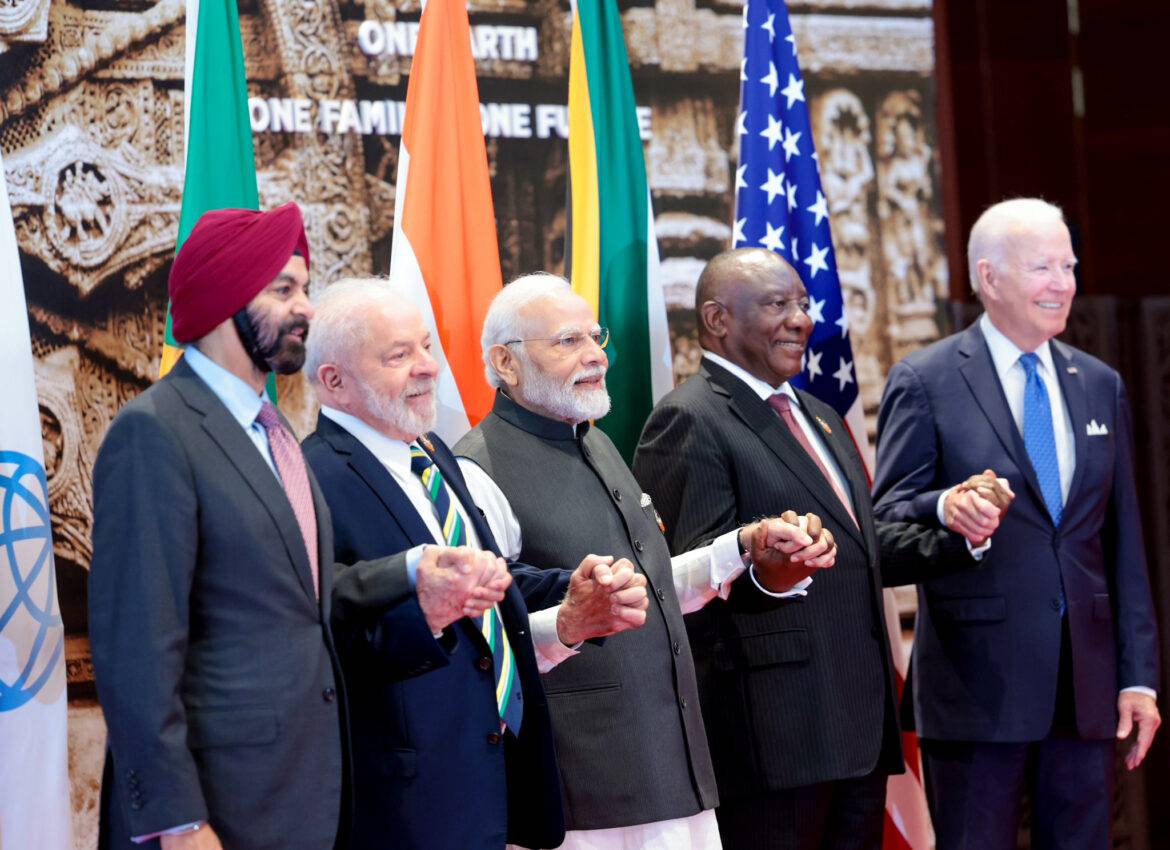AI Generated Summary
- Ajay Banga’s journey from an Indian youth to the helm of the World Bank serves as a testament to the potential that Indian education and talent hold on the global stage.
- ‘ He pointed out that over half of the World Bank’s employees are located outside the United States, highlighting the institution’s global nature and the importance of diverse voices in shaping its future.
- His statement encapsulates not only his own remarkable journey but also serves as an inspiring story of an Indian-educated youth who has ascended to one of the most influential positions in the global financial arena.
“I am the perfect example of Make in India,” declared Ajay Banga, the current Chief of the World Bank, in recent interview. His statement encapsulates not only his own remarkable journey but also serves as an inspiring story of an Indian-educated youth who has ascended to one of the most influential positions in the global financial arena.
Banga’s roots lie deep in India, where he spent his formative years and received his education exclusively from Indian institutes. Remarkably, he proudly stated that he hadn’t pursued a single course abroad. This assertion underscores the quality and competence of education available within the country’s borders, demonstrating that one can achieve great heights through dedication and hard work, regardless of where they start.
In the interview, Banga emphasized the role of luck, hard work, and the ability to seize opportunities in achieving success. He underscored that luck plays a significant part in one’s journey but added that the remainder of success is built upon relentless effort and capitalizing on opportunities as they arise.
Banga’s appointment as the head of the World Bank came at a pivotal moment in global finance. India’s G-20 Presidency focused on reforming multilateral development banks, with Banga entrusted by President Biden to adapt the World Bank to address China’s growing challenge to the traditional Washington-led global financial order. Banga’s unique perspective as an Indian-educated professional brings a fresh perspective to this challenge, illustrating the global significance of Indian talent and expertise.
The World Bank Chief also challenged the notion of a ‘Washington-dominated world.’ He pointed out that over half of the World Bank’s employees are located outside the United States, highlighting the institution’s global nature and the importance of diverse voices in shaping its future.
Banga’s vision for the World Bank is clear: he seeks to redefine its mission and make it more inclusive. His recent interactions with world leaders and finance ministers from numerous countries have given him valuable insights into this transformation. Key elements of his strategy include defining a clear vision, communicating it effectively, efficient management, and measurable goals with straightforward scorecards.
When it comes to geopolitics and China, Banga displayed a pragmatic approach. He acknowledged the challenges faced by the world but emphasized that the financial energy required to address these challenges should not be concentrated within a single institution. Despite geopolitical complexities, he noted that China is a shareholder in the World Bank, and their financial contributions have evolved over time.
Additionally, Banga highlighted the pressing global issues of climate change and healthcare as pivotal areas for the World Bank’s focus in the coming years. These are areas where international collaboration and financial support are paramount, and the World Bank, under his leadership, aims to play a significant role.
Lastly, Banga’s discussions with US President Joe Biden have underscored the importance of American contributions to the World Bank, which enhance the institution’s capacity to make a global impact. This partnership reaffirms the World Bank’s relevance in addressing global challenges.
Ajay Banga’s journey from an Indian youth to the helm of the World Bank serves as a testament to the potential that Indian education and talent hold on the global stage. His vision for the institution, coupled with his pragmatic approach to geopolitics, promises to bring a fresh perspective to the world of global finance and development. As an inspiring figure, he showcases how dedication, hard work, and seizing opportunities can lead to extraordinary achievements.




